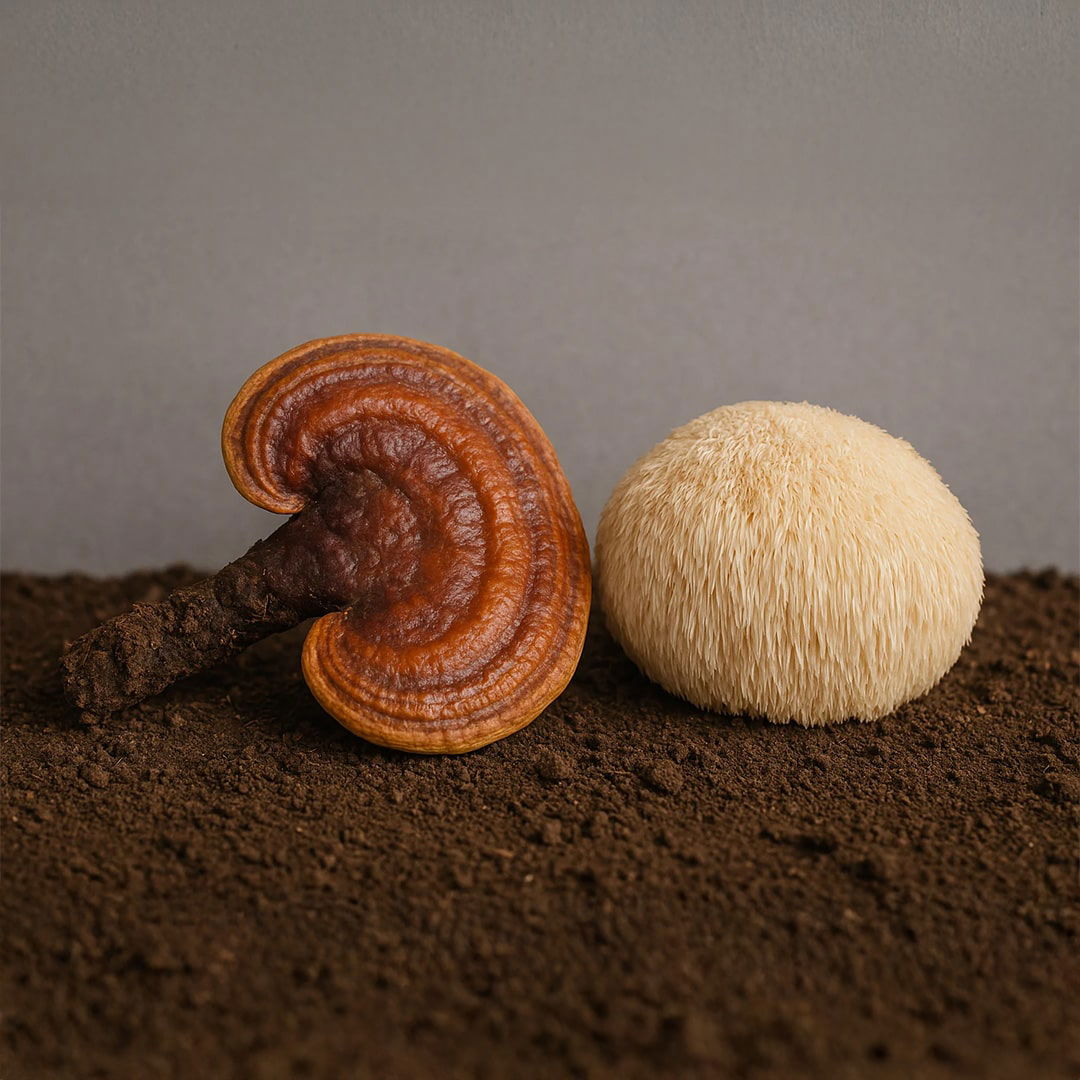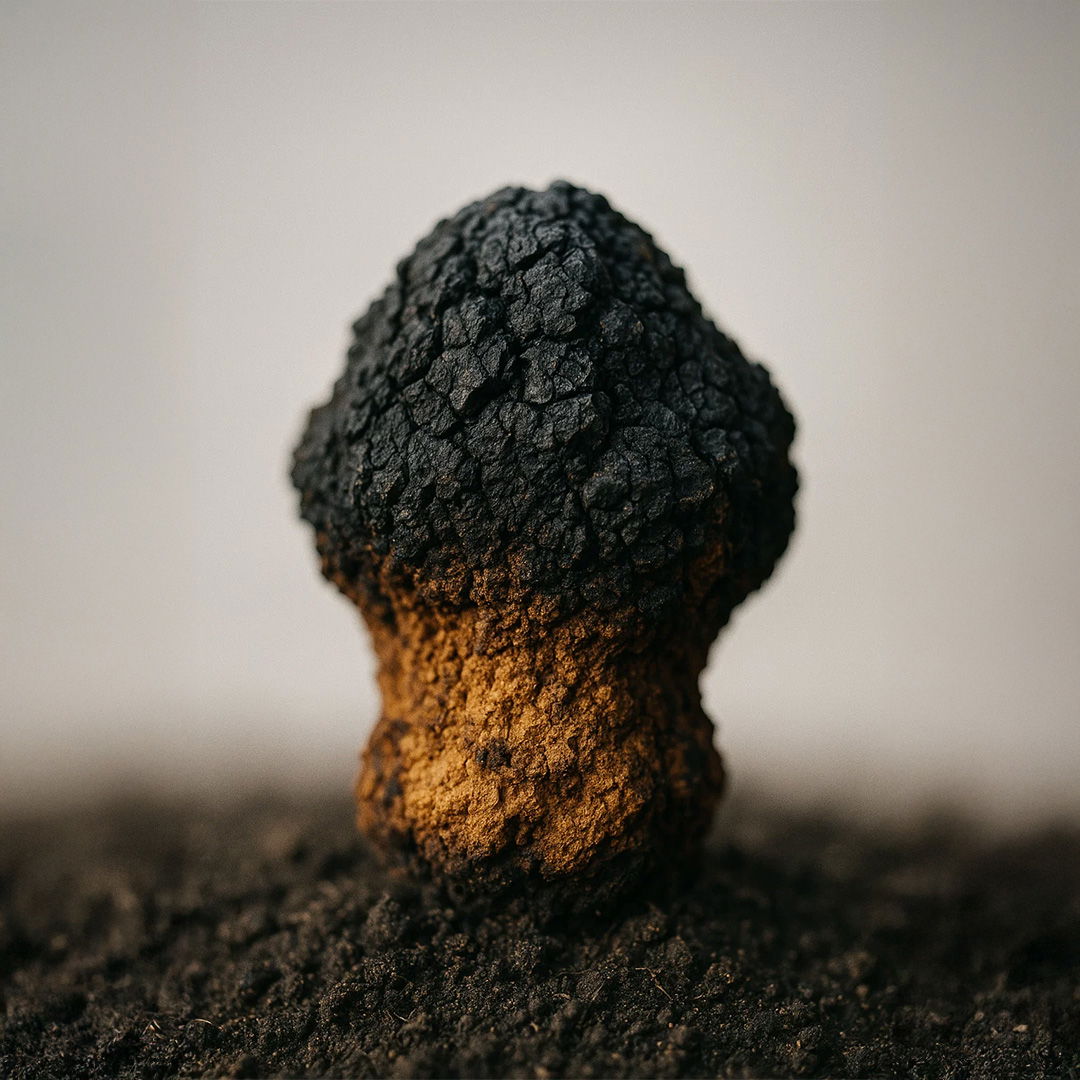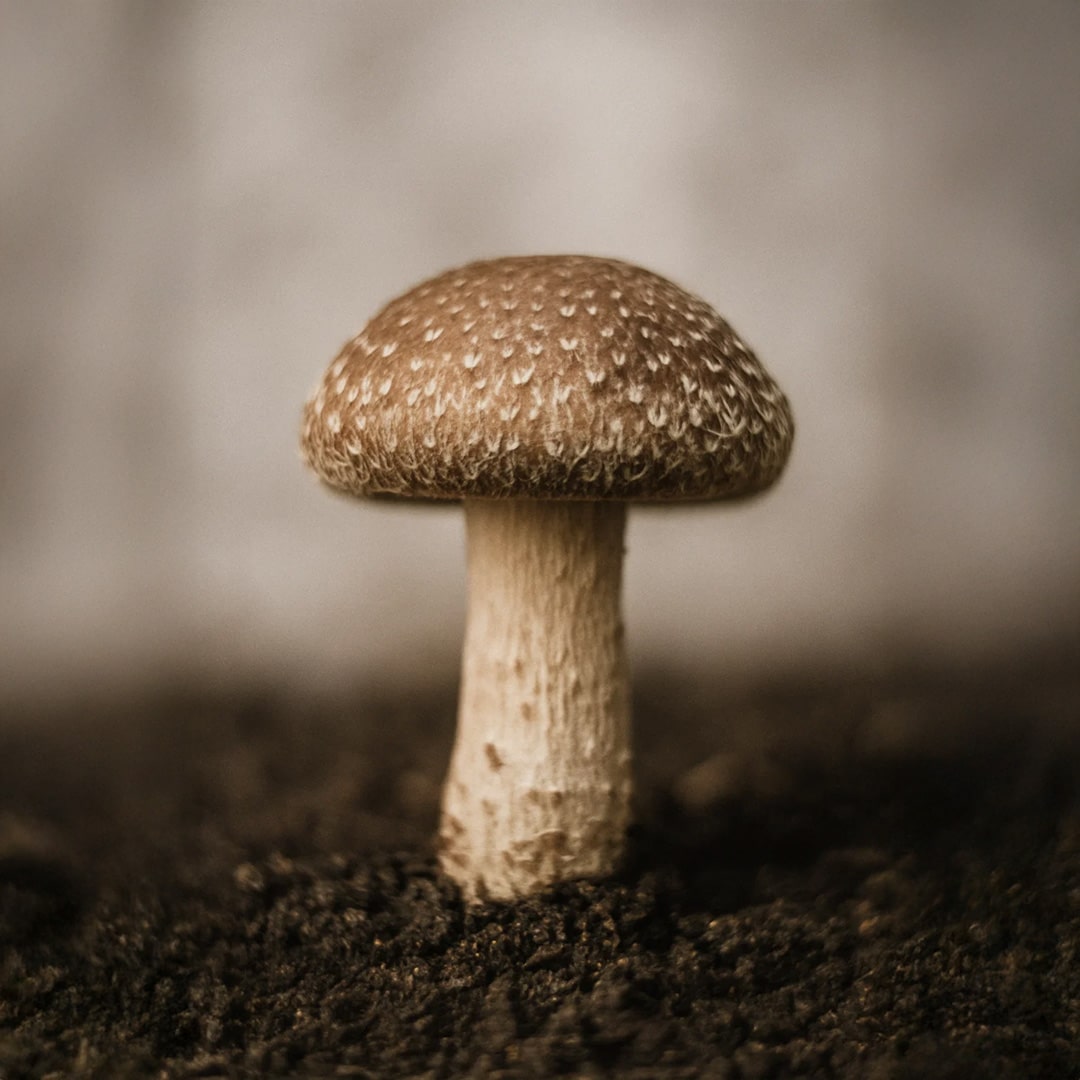Discovering Adaptogenic Mushrooms – Part 1
This isn't a marketing page. This is your space to understand—with clarity, without fluff. You've probably heard of adaptogens, functional mushrooms, or nootropics. Maybe you're curious. Maybe you're skeptical. Either way, you deserve transparency. And real answers. This Wiki explains what's in our formulas, where the ingredients come from, why we use them, and how they can help you feel like yourself again. No buzzwords. No empty promises. Just simple, clear, science-backed explanations.
— What are functional mushrooms?
A01
Functional mushrooms aren't magic—but used properly, they can come close.
These mushrooms have been used for centuries in traditional medicines to support energy, immunity, focus, and calmness. Today, modern research confirms what many already knew: certain mushrooms can help the body adapt, recover, and regulate itself.
At Santa Mood, we use functional mushrooms not because they're trendy—but because they work.
And combined with adaptogens, vitamins and active plants, their effects become more targeted, more regular, and more concrete.

—Reishi
What is Reishi?
Reishi, scientifically known as Ganoderma lucidum , is a functional mushroom that has been valued in traditional medicine for over 2,000 years. Also known as the “mushroom of immortality,” Reishi is known for its powerful health benefits, thanks to its richness in bioactive compounds such as polysaccharides, triterpenoids, and antioxidants.

+ Health benefits
- Potential side effects
Scientific research
— Chaga
What is Chaga?
Chaga (Inonotus obliquus) is a dark, irregular mushroom that primarily colonizes birch trees in Northern Europe, Russia, and parts of North America. Historically used in traditional medicine to treat gastrointestinal, liver, and immune-related conditions, modern science has identified its main active components:
Polysaccharides (β-glucans): Immunomodulatory and prebiotic functions
Triterpenoids: Anti-inflammatory and hepatoprotective effects
Polyphenols and melanin: Powerful antioxidants that reduce oxidative stress

+ Health benefits
- Contraindications and side effects
Scientific research
— Shiitake
What is Shiitake?
Shiitake mushrooms (Lentinula edodes) are popular medicinal and culinary mushrooms known for their rich umami flavor and potential health benefits. Native to East Asia, shiitake mushrooms have been used for centuries in traditional medicine for their immune-supporting and anti-inflammatory properties.

+ Health benefits
- Contraindications and side effects
Scientific studies and research
— Frequently Asked Questions
Store in a cool, dry place away from direct light. After opening, it is recommended to refrigerate the gummies.
Effects can appear after several weeks or even months of regular use, depending on what you're looking to improve—whether it's cognitive function, physical endurance, or immunity.
Taking functional mushrooms is not recommended without prior medical advice, as the safety of some mushrooms during pregnancy or breastfeeding has not yet been adequately studied.
In most cases, functional mushrooms are well tolerated. However, if you suffer from a chronic illness, it's best to seek advice from a healthcare professional to avoid possible interactions with your medications.


